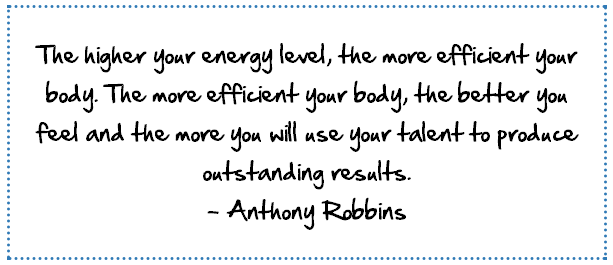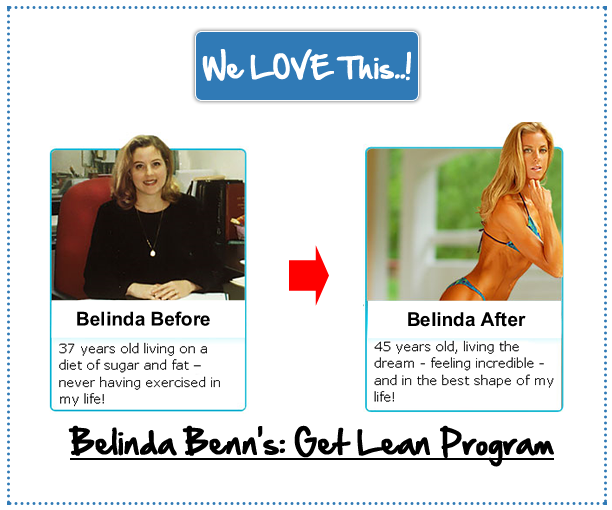In today’s issue of FUN, HOT, NO B.S. Fitness Magazine!…
 Belinda Benn – VFT’s Featured Fitness Expert (International Fitness Model and Transformation Coach) – uncovers the mystery surrounding women and exercise-induced hormones…
Belinda Benn – VFT’s Featured Fitness Expert (International Fitness Model and Transformation Coach) – uncovers the mystery surrounding women and exercise-induced hormones…
And the powerful affect they have on your ability to burn fat, increase lean muscle, your looks, health and your mood!
Also in this issue…
If you are ready to make a major shift and walk through life with more confidence in your fitness lifestyle, see today’s “We Love This!”
I hope you enjoy today’s lesson and PLEASE leave your feedback BY CLICKING ON THE COMMENTS box below, we love hearing from you!

VirtualFitnessTrainer.com
VFT – NO BS Fitness!


I get a lot of questions about how exercise affects hormones. Some women are worried that they’ll start missing periods if they exercise too much. Others are worried that they’ll get a shot of testosterone that will make them look like a man. Still others wonder how, exactly, exercise affects the hormones that influence our moods.
Here’s the good news: Exercise (especially the right kind) generally affects your hormones in a positive way. Read on to discover how your exercise routine impacts your body’s natural chemicals…
Adrenaline
I used the name adrenaline, simply because that’s the term most lay people use. And it makes sense, since this is the hormone released by the adrenal gland. However, those in the medical community usually refer to this hormone as epinephrine.
You’ve probably heard of adrenaline – it’s the fast-acting hormone that enables the “fight or flight” response in a dangerous situation. It boosts your heart rate so that your heart can get blood to your limbs more quickly. It also helps your body break down stored glycogen to fuel your activity.
Long-duration, intense exercise stimulates the production of adrenaline. As you might guess, this shot of adrenaline can help you get through a tough workout.
Now here’s the thing…
Adrenaline is normally thought of as a “stress hormone,” which means you don’t want too much unused adrenaline floating around your body. That’s not a big deal when you’re working out, because you’re “working off” any adrenaline you produce. However, even normal stress in your life causes your body to create adrenaline. Point is, you can reduce this stress hormone in your body – and make yourself feel better – simply by working out regularly to use up the excess adrenaline!
Endorphins
Here’s another hormone you’re probably very familiar with, especially if you’re used to working out hard. This is the hormone that produces the famed “runner’s high,” although any long-duration or high-intensity exercise can trigger its release. Endorphins increase your pain threshold, reduce hunger and generally give you a feeling of well-being. 1
Bottom line: Endorphins are your friend! These are the hormones that will get you through a tough workout. The endorphins will block the pain on that last set of squats or help you blast through the last few minutes of high-intensity cardio. And the more you exercise, the more sensitive you become to endorphins (meaning you need less to feel good).
Estrogen
Estrogen is actually a class of hormones which includes hormones such as estradiol, estriol and estrone. Estradiol is the hormone you’re most concerned about, because it’s the one found most in non-pregnant, non-menopausal women.
Estrogen is linked to a whole host of functions, including metabolism and fat storage. While estrogen is thought to accelerate the metabolism, it’s also thought to increase the number of fat stores and reduce muscle mass. In other words, any metabolic boost may be eating away at the muscle (rather than tapping into fat).
Another bonus to lowered estrogen levels is that cancer (especially after menopause) is thought to “feed off” estrogen. Thus women with lower estrogen levels may enjoy a reduced risk of breast cancer.
So you want a low level of estrogen, right? Not quite. That’s because low levels or wildly fluctuating levels of estrogen can cause anything from depression to a bad mood to a poor libido.
The solution?
You want a natural, healthy balance of estrogen. And one of the best ways to achieve this balance is through regular exercise.
Here’s why:
1. Regular exercise promotes good health, which promotes a balanced production of hormones.
2. Regular exercise also helps you deal with stress. And since stress tends to cause an overproduction of estrogen, handling your stress helps balance your estrogen levels.
Insulin
Insulin is a hormone that regulates your blood sugar – that is, the amount of glucose you have in your blood. When insulin is present, you’re more likely to store fat (often in your abdomen). You’re also less likely to use your existing fat stores for energy.
When you eat, your blood sugar goes up. Your body responds by sending out insulin to deal with this spike in blood sugar. Thus the bigger the meal, the more glucose you have in your blood, and the higher your insulin response. The insulin tells your body to store the extra sugar in your fat cells, liver or in your muscles. If these stores are already full, then you’ll have high blood sugar.
Fortunately, exercise helps your body regulate your blood sugar and insulin response. In otherwords, regular exercise (and weight training in particular) helps you “work off” the sugar in your muscles, which helps lower blood sugar. Plus, regular exercise helps improve your body’s sensitivity to insulin, which helps you regulate your blood sugar. Indeed, some diabetics can use exercise rather than medication to regulate their blood sugar.
Testosterone
Quick, what do you think of when you think of testosterone? That’s right, you think of men – especially bodybuilders and other high-intensity athletes.
But here’s the thing – even women have a small amount of testosterone in their bodies. This hormone helps burn fat, build muscle, increase your bone density and contribute to your confidence and sexual desire.
The good news is that vigorous exercise – especially weight training with heavy weights — promotes the production of testosterone.2 While you certainly won’t be able to produce as much of this hormone as a man (which wouldn’t be good anyway, unless you’re partial to a deep voice and other male characteristics), you may be able to boost it enough to enjoy the anabolic and sexual side effects.
Growth Hormone
Some people call this the “anti-aging” hormone. That’s because it contributes to fat loss and muscle building. When you’re young you have an abundance of this hormone. But as you age, this hormone decreases. The “middle age” spread (added fat) and slowed metabolism (less muscle) may be due to a lack of growth hormone.
But there’s good news: Researchers have discovered that anaerobic exercise, like HIIT (high intensity interval training) helps your body produce growth hormone naturally.3 As such, regular high intensity exercise can seemingly reverse the signs of aging, help you shed fat and help you build muscle!
Bottom Line
Almost any type of regular exercise is beneficial to your overall health and wellbeing. However, weight training and high intensity exercises are especially beneficial when it comes to your hormones. These exercises promote the production of testosterone, growth hormone, endorphins and the other beneficial hormones mentioned above. End result? Your looks, health, mood and even your love life get a boost!
References
1. Boecker H., Sprenger T., Spilker M.E., Henriksen G., Koppenhoefer M., Wagner K.J., Valet M., Berthele A., Tolle T.R. (February 2008). “The Runner’s High: Opioidergic Mechanisms in the Human Brain”. Cerebral cortex (New York, N.Y. : 1991) 18 (11): 2523.
2. Hatfield, F. (2004). “Repetitions, Sets, Frequency and Hormones.” Fitness the Complete Guide, 428 – 430
3. Godfrey R.J., Madgwick Z., Whyte G.P. (2003). “The Exercise-Induced Growth Hormone Response in Athletes.” Sports Med, 33(8):599-613.
—————————————
 Belinda Benn: As someone who hadn’t exercised until I was 37, I know how tough it can be to get into shape—at any age.
Belinda Benn: As someone who hadn’t exercised until I was 37, I know how tough it can be to get into shape—at any age.
In my 30s, I realized that my body had paid the price for years of office work, eating a lot of sugar and fat, and a lack of exercise. I made some drastic changes—both inside and out—and after a few years backpacking around the world and learning to surf with the pros, I hunkered down in my 40s to study nutrition, leaning out, and body building.
It’s all paid off! Now I’m a leading Fitness Expert and Transformation Coach and an internationally published fitness model. My no-nonsense, down to earth approach to nutrition, food preparation, and fitness has proven results for both men and women who want to lean out, get fit, and be the best they’ve ever been—at any age! Get Lean Program.com
[wlsp_jvftbasecontentvaluablebanners]

